All Stories
-
 Genetics
GeneticsDNA architecture, novel forensics offer new clues
Going from theory to practice is always rife with problems, be it shifting from the sequence of DNA’s letters to observing its dynamic machinations or from an identity marker in the lab to a piece of courtroom evidence.
By Eva Emerson -
 Humans
HumansMoon bounces, bad spider leaders and more reader feedback
Readers debate faith's role in evolution, compare politicians to spiders and more.
-
 Chemistry
ChemistryWanted: Crime-solving bacteria and body odor
Forensic investigators are moving past old-school sleuthing to analyze microbes and odors that tell a more complete story, while pursuing ways to enhance traditional tools as well.
By Meghan Rosen -
 Health & Medicine
Health & MedicineBlood test can predict breast cancer relapse
Blood tests for breast cancer DNA can predict relapse.
-
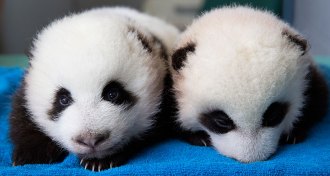 Animals
AnimalsTwin pandas look forward to growth spurts
The surviving panda twin born at the National Zoo last weekend will undergo DNA tests to discover paternity.
By Meghan Rosen -
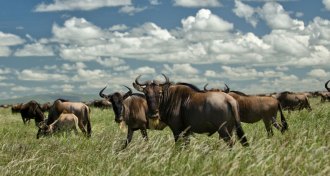 Animals
AnimalsA world of mammal diversity has been lost because of humans
Humans have eradicated large mammal biodiversity in most regions of the globe, a new study finds.
-
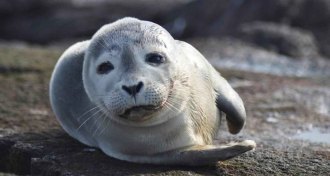 Health & Medicine
Health & MedicineVirus closely related to hepatitis A discovered in seals
Scientists have discovered a relative of the hepatitis A virus in seals.
-
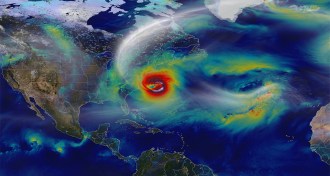 Climate
ClimateHurricane’s tiny earthquakes could help forecasters
Hurricane Sandy set off small earthquakes under its eye as it moved up the U.S. East Coast in 2012. The tiny tremors could help researchers track the behavior of future storms, researchers propose.
-
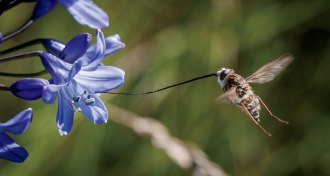 Animals
AnimalsLong-tongued fly sips from afar
Long-tongued flies can dabble in shallow blossoms or reach into flowers with roomier nectar tubes.
By Susan Milius -
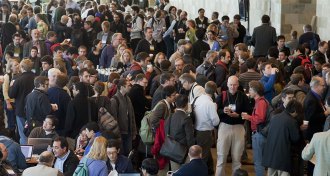 Physics
Physics3-D printed device cracks cocktail party problem
A plastic disk does what sophisticated computers cannot: solve the cocktail party problem.
By Andrew Grant -
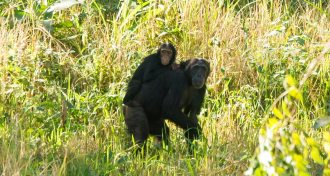 Animals
AnimalsChimps keep numbers high as forest losses mount
African apes show surprising resilience in face of forest destruction.
By Bruce Bower -
 Animals
AnimalsChimps keep numbers high as forest losses mount
African apes show surprising resilience in face of forest destruction.
By Bruce Bower